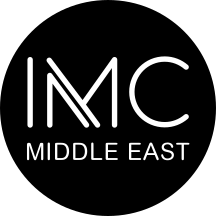As we step into 2025, organizations face an evolving landscape shaped by sustainability imperatives, digital transformation, and the demand for operational excellence. Meeting these challenges requires not just ambition but a framework for action—and this is where international standards play a transformative role.
At IMC, we believe that aligning with global standards empowers businesses to achieve their strategic goals while contributing to broader Environmental, Social, and Governance (ESG) objectives. In this blog, we explore the latest standards and how they can help organizations thrive in a rapidly changing world.
1. Sustainability: Empowering Businesses to Lead Responsibly
Sustainability is no longer optional—it’s a business imperative. International standards provide the tools organizations need to embed sustainability into their operations while meeting ESG commitments.
*ISO 20400: Sustainable Procurement
Focusing on ethical and environmentally responsible sourcing, this standard ensures procurement practices align with sustainability goals.
Why It Matters:
- Reduces environmental impact across supply chains.
- Enhances transparency and stakeholder trust.
*BS 25700: Modern Slavery
This standard equips organizations to address forced labor and unethical practices in supply chains, fostering fair labor conditions.
Key Takeaways:
- Proactively identifies risks in global supply chains.
- Strengthens alignment with global human rights standards.
*ISO PAS 53002: ESG Integration
This new guideline helps businesses systematically align their strategies with the UN Sustainable Development Goals (SDGs).
Key Benefits:
- Encourages integration of ESG principles into operations.
- Supports measurable impact toward sustainability goals.
2.Digital and Resilience: Preparing for a Dynamic Future
Digital transformation and the ever-present risks of crises demand resilience and robust digital frameworks.
*ISO/IEC 27001: Information Security Management
Updated to address emerging cyber threats, this standard ensures organizations can secure sensitive data in an increasingly digital world.
Key Features:
- Enhances cybersecurity through modernized controls.
- Builds trust with stakeholders by safeguarding data integrity.
*ISO 22361: Crisis Management
Helping organizations navigate disruptions, this standard focuses on minimizing the impact of unexpected events.
Why It’s Essential:
- Strengthens preparedness and response mechanisms.
- Promotes resilience in a volatile business environment.
*ISO 20022: Smarter Financial Messaging
Revolutionizing global financial messaging, ISO 20022 improves data sharing and interoperability.
Key Benefits:
- Enhances efficiency in financial transactions.
- Supports compliance and data transparency.
3.Performance Excellence: Driving Innovation and Continuous Improvement
Operational excellence requires adaptability, innovation, and a commitment to quality.
*ISO 9001: Quality Management
As ISO 9001 undergoes its latest revision, a spotlight is being placed on climate change and sustainability, ensuring the standard remains relevant for modern business needs.
What’s New:
- Emphasis on integrating sustainability and environmental goals into quality management systems.
- Enhanced focus on risk-based thinking, accounting for climate-related challenges.
Why It Matters: - Prepares businesses to align quality objectives with ESG goals.
- Ensures resilience in the face of evolving stakeholder expectations.
*ISO 56000 Series: Innovation Management
This suite of standards supports organizations in fostering innovation while maintaining operational efficiency.
Key Takeaways:
- Provides tools to embed a culture of innovation.
- Encourages sustainable, creative solutions to business challenges.
In 2025, businesses must navigate complex challenges while making meaningful contributions to sustainability and resilience. International standards provide a roadmap for achieving these goals, empowering organizations to build a future defined by excellence and impact.
At IMC, we’re committed to guiding businesses through this journey, ensuring alignment with global standards and ESG objectives. Together, let’s make 2025 a year of transformative growth and shared success.

